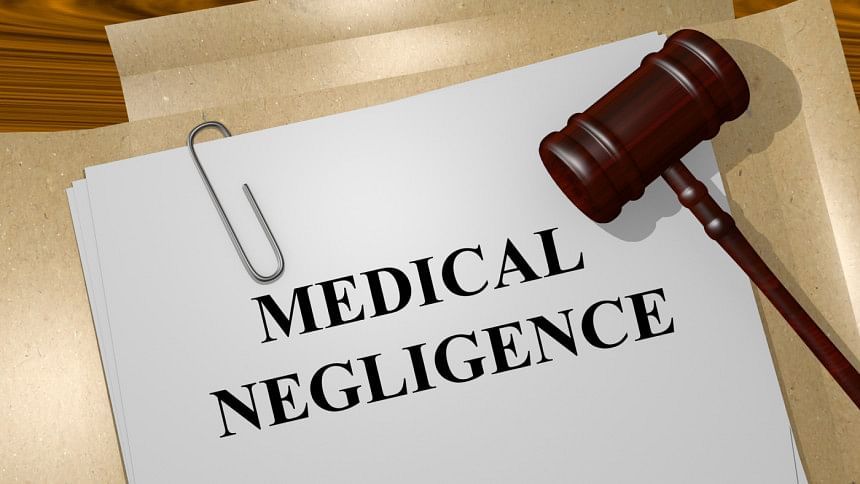Medical negligence and legal remedies in Bangladesh

Medical negligence happens whenever a healthcare professional fails to meet an acceptable level of care, causing harm to the patient. Misdiagnosis, surgical errors, prescription mistakes, wrong treatment, and even death are all possible examples of medically negligent behavior.
Unfortunately, medical malpractice incidents occur frequently in Bangladesh. People who are aware of the state of the healthcare industry in Bangladesh, as well as the overall lack of responsibility of the healthcare personnel, should not be surprised by the most recent occurrence, the death of a little boy Ayaan, at the United Hospital during performing his circumcision. The High Court Division (HCD) of the Supreme Court of Bangladesh instructed the Directorate General of Health Services (DGHS) to investigate the death of five-year-old Ayaan and produce a report. The HCD bench further issued a ruling, asking why hospital authorities should not be directed to take necessary measures to give TK. 5 crores in compensation to the family of Ayaan. The court also wanted a list of all licensed and unregistered private hospitals in the country within one month. The tragic death of expectant mother Mahbuba Akter Akhi at Central Hospital and the death of Rafida Khan Raifa at Max Hospital in Chittagong are some other appalling cases. During the COVID-19 outbreak, complaints were made against the United Hospital in Gulshan, for their severe carelessness, which resulted in the death of an old woman.
The surge of unlicensed clinics and unqualified practitioners, paired with a rising profit-generating mentality among medical professionals, fuels medical negligence in Bangladesh. Despite having multiple laws addressing different aspects of medical care, Bangladesh lacks a unified legislation specifically targeting medical misconduct. This can be a significant barrier for individuals pursuing legal actions after believing they have been harmed by medical negligence. Though lacking a unified law, Bangladesh utilises a traversed legal landscape to address medical malpractice through multiple existing laws and policies.
The Penal Code 1860 covers allegations such as negligently causing death or harm, endangering life, and drug adulteration. However, proving medical negligence under these conditions might be challenging. Further complication arises due to the otherwise valid good faith defence put forward by the healthcare professionals. The Consumer Rights Protection Act of 2009 classifies individuals as consumers and medical institutions as service providers. It allows for complaints against medical malpractice, with potential fines for providers. Patients can sue for reimbursement for medical negligence-induced damages such as bodily injury, pain, suffering, and lost income. Above all, the Constitution of Bangladesh protects the fundamental rights of every citizen. Patients can file writ petitions under applicable provisions to seek remedies for violations of their constitutional rights.
The potential effectiveness of the laws is undercut by their inherent challenges and limitations which hinder a patient from accessing justice. The burden of proof is quite challenging to discharge as well, necessitating professional medical judgments and evidence. Legal actions can last years and demand substantial financial resources. Many patients are unaware of their legal rights and have limited access to legal assistance. Further, the healthcare personnel frequently hold positions of power, making it harder for people to exercise their rights.
Medical negligence is a clear violation of the right to health while the absence of a specific law against medical malpractice presents challenges. As Bangladesh grapples with balancing between patients' rights and healthcare professionals' accountability, the question remains: how can the legal scheme be further refined to effectively address medical negligence while fostering trust and transparency within the healthcare system?
The Writer is an Official Contributor, Law Desk, The Daily Star.

 For all latest news, follow The Daily Star's Google News channel.
For all latest news, follow The Daily Star's Google News channel. 



Comments